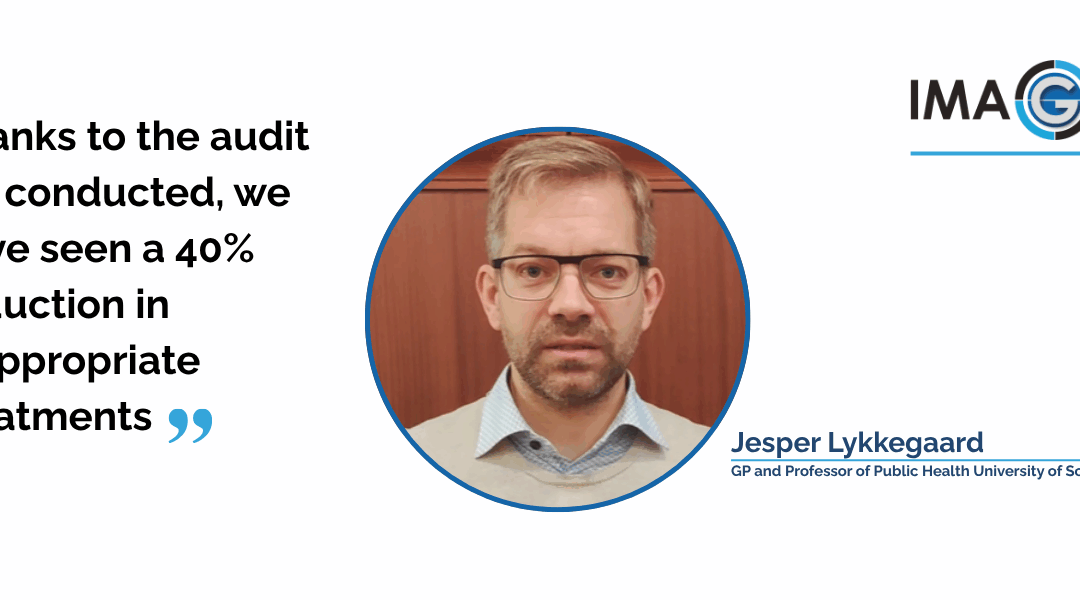This is one of the achievements of the methodology applied by the IMAGINE Project: the audit method which have led people to change their habits on their own, without third-party interests, achieving a 40% reduction in the unnecessary prescription of antibiotics for respiratory tract infections.
According to Jesper Lykkegaard, GP and Professor of Public Health University of Southern Denmark, the audit method used by the IMAGINE Project is based on three principles. The first, based on Kierkegaard’s philosophy, implies that if you want to move someone, you must first take an interest in where they are, which in the specific case of the IMAGINE Project means that the participants themselves discover what they are actually doing. This first principle leads to the second, which is vitally important to show that everyone can have a quality problem, not just others. IMAGINE Project has shown healthcare workers this reality, encouraging them to act and improve on their own initiative. The last principle is that once the problem has been shown, they are brought together to learn from each other and share experiences and solutions. By acting in this way, Lykkegaard believes that significant reductions have been achieved, 40% according to initial estimates, in inappropriate diagnoses and treatments.
Regarding the key factors that have contributed to the success of the IMAGINE Project, especially in participation, Jesper Lykkegaard says it is like holding a mirror in front of them to see their usual activity. This allows them to see the reality and realize that sometimes they are also part of the problem, which enables them to do something about it and, at the same time, agree with other participants that something needs to be done.
All these issues and more were discussed during the last IMAGINE Project team meeting in Lithuania on November 28 and 29 of 2024.
If you want to know more, don’t miss the other three interviews conducted with Jette Nygaard, Tina Marloth and Anne Marie Theut.

